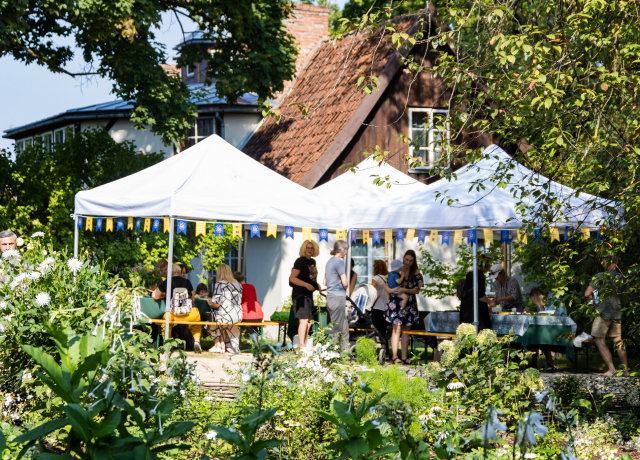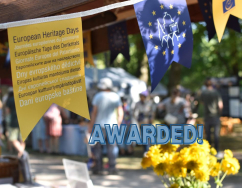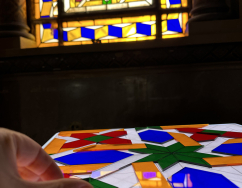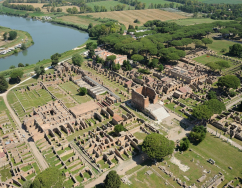European Heritage Days Article:
How EHD Stories has Encouraged Exploration of Traditional Gardens in Latvia
European Heritage Days Article:
How EHD Stories has Encouraged Exploration of Traditional Gardens in Latvia
Combining natural, tangible and intangible elements, one of the projects awarded a grant through European Heritage Days Stories in 2024 was for a series of activities to revive horticultural traditions and promote the cultural, historical and environmental significance of gardens in a town in Latvia.
The European Heritage Days Story
From the loss of courtyard atmospheres to knowledge about plant species, the ‘Reviving Tradition: a Journey Through Kuldīga's Historical Gardens and the Green Renaissance’ Story highlighted disappearing gardening traditions in the historic town of Kuldīga in the western part of Latvia. The Story explained how the recent creation of a traditional garden in the town which blended historical and modern elements was used as a way to inspire local residents to create and maintain their own gardens, and in doing so how this is helping to preserve the cultural heritage and improve sustainability in the area.
Educational, leisure and sustainability goals
Supporting the project, the European Heritage Days Stories grant was used for a series of activities about gardening in the town which mixed educational goals with improvements to leisure spaces. It also aimed to enhance quality of life and pride in the local area by emphasising research and promotion of historic garden traditions as an important element for community engagement and understanding the town’s history. Practical knowledge about gardening combined with a call to share old family photographs and memories was designed to foster a sense of ownership and belonging to the historical environment for residents and thereby encourage them to cultivate their own outdoor spaces across the town.
The topic of urban gardening also provided opportunities to raise environmental awareness of issues such as sustainability, climate change and biodiversity. As such, eco-friendly practices such as collecting rainwater, avoiding pesticides and using traditional local plants were championed throughout the project.
Activities to create, enjoy and learn about traditional gardens
The project consisted of several key components to engage the community including lectures, workshops and the creation of new gardens. The other key outcome of the project was the curation of an exhibition. Working with Kuldīga District Museum, and enriched with documented memories and photos from local residents, the display was entitled, ‘A Journey Through Time and Gardens’ and traced the evolution of gardens in the area from the 14th to 20th centuries.
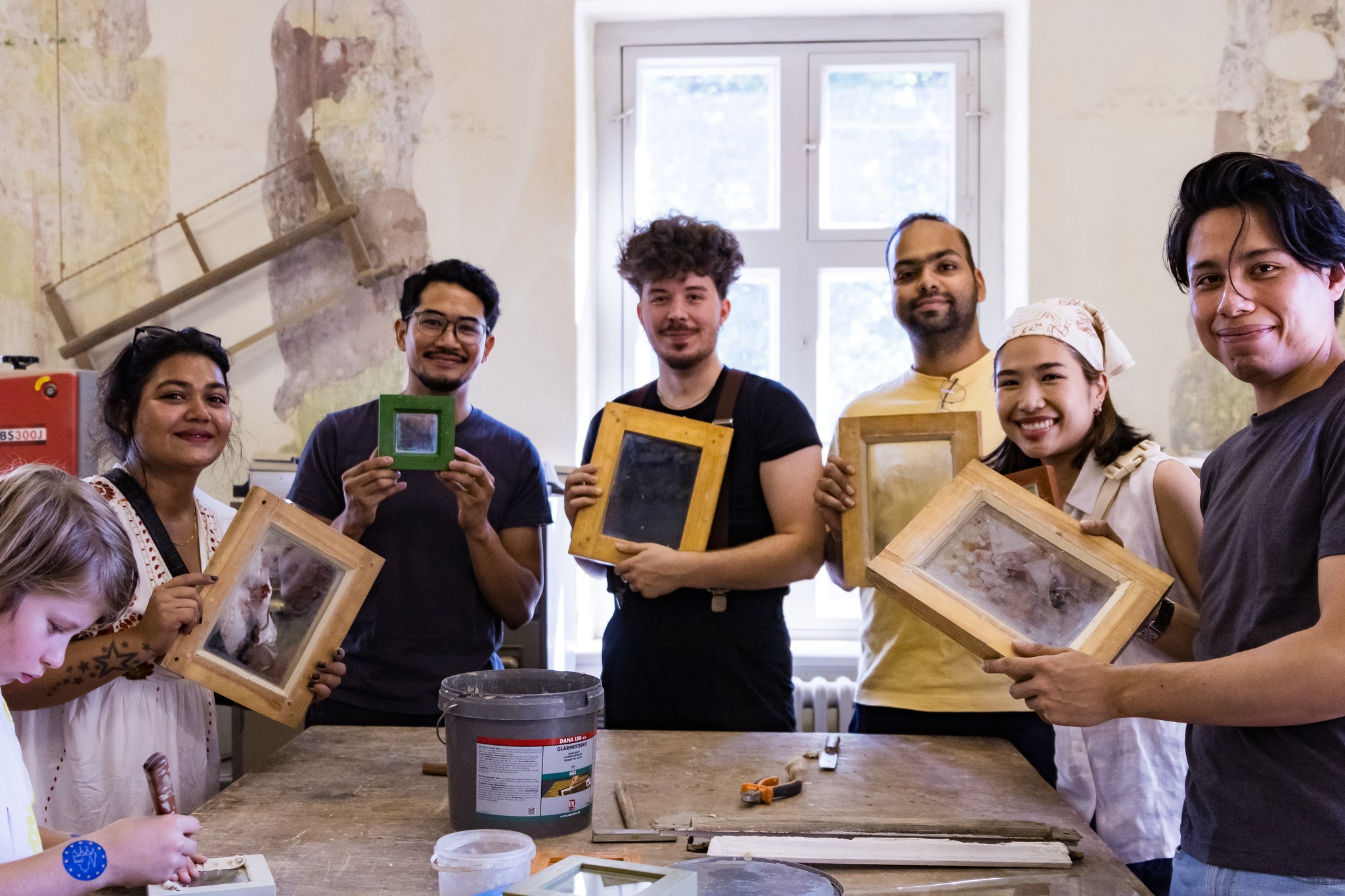
Another aspect of the project involved a series of educational lectures. Across 10 talks, 250 attendees learned from local and international experts about a range of subjects including sensory gardens, the role of plants for well-being and garden culture in the 19th century. With a focus on practical outcomes, demonstrations accompanied the talks covering topics such as garden planning and bulb planting to equip residents with ideas and knowledge about traditional gardening techniques. To proactively boost the creation of new gardens the project also supported the planting of three new spaces designed in a traditional style. With help from residents, horticultural experts and local artists, the garden owners were provided with fencing, a variety of seedlings selected to provide year-round flowers and expert advice on issues such as soil conditions and light.
The selected sites for the new gardens were in neglected parts of the Old Town with the aim of serving as both educational and leisure spaces while helping to revitalise these areas with garden routes. One example of this in practice was a family-friendly picnic event called ‘Garden Speaks’ at the new courtyard garden of the Restoration Centre of Kuldīga. Alongside refreshments made from the garden produce such as vegetarian recipes and herbal teas which showcased the health benefits of certain foods, the 600 participants could take part in eight workshops with a focus on environmental awareness. Topics such as composting and plant recognition were covered, while children’s activities included ‘garden bingo’ to search for interesting plants and animals in the gardens.
Encouraging international participation
Aligning with the 2024 European Heritage Days theme of ‘Routes, Networks and Connections’, the project looked to highlight links with the historic and contemporary horticultural heritage of other countries. This involved 90 participants taking part from other countries, achieved by working with organisations such as the West Sweden Garden Association who shared their experience on developing and promoting garden routes in historical settings and specialists from the French Embassy which gave a lecture on ‘Historical Garden Traditions in France’. A cross-border visit also allowed for a joint visit to see a dahlia collection and botanical gardens in Lithuania, reciprocated by an invite to the ‘Garden Speaks’ event providing shared experiences and strengthening international connections.
The project’s intercultural approach also included providing language translations during the workshops to allow as many people to take part as possible, while translated subtitles on an online video about the events additionally helped to broaden reach.
Continuing developments and future plans
The project has continued to develop this year with a spring festival, while the first garden route also recently launched for people to experience the unique character and charm of the old town’s courtyard gardens. The full route is planned to be open by 2027, with the next stage being a new thematic garden route for 2025 including a tour through five green spaces, each with their own style to take visitors on a ‘Journey Through Time and Gardens’. A further adult learning project is also now being planned with partners in Sweden, Lithuania and Finland.
A video story about the project can be watched on YouTube, while more information including this year’s garden route can be found on the Kuldīga Old Town Garden page on Facebook.
